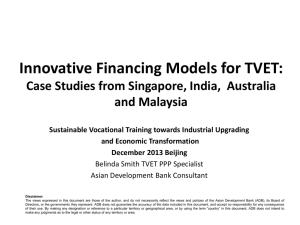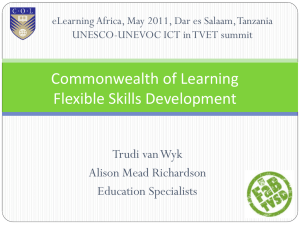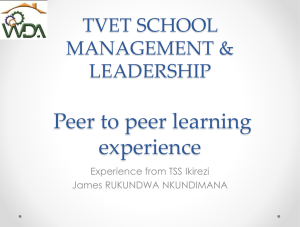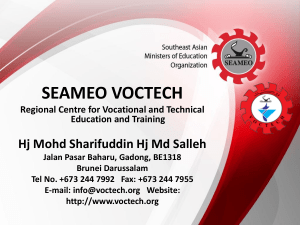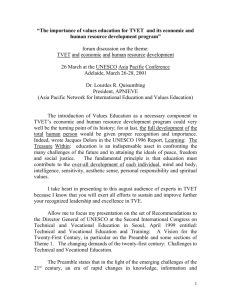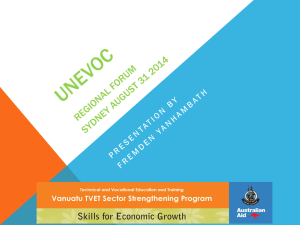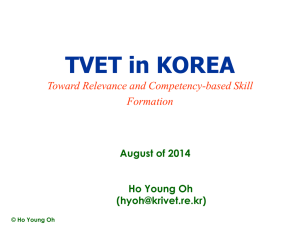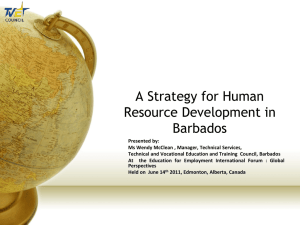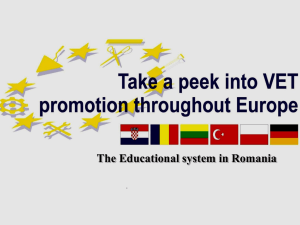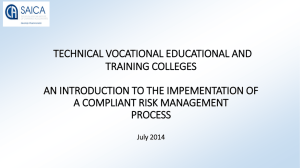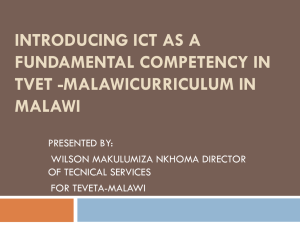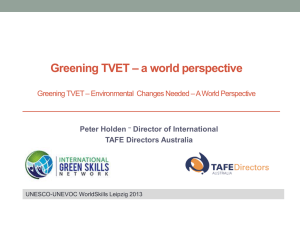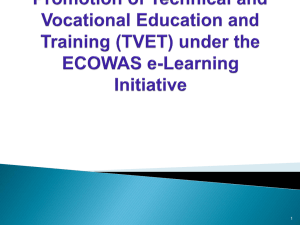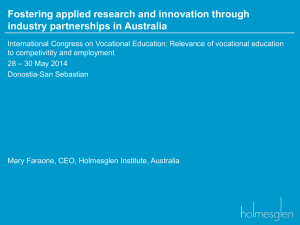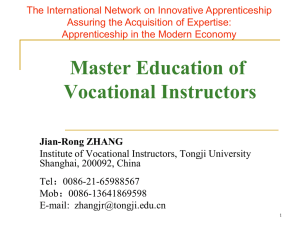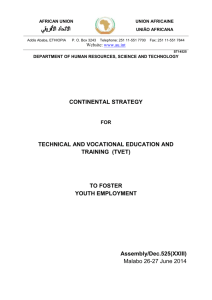National Training Board Policies - integrating ict and new media in
advertisement
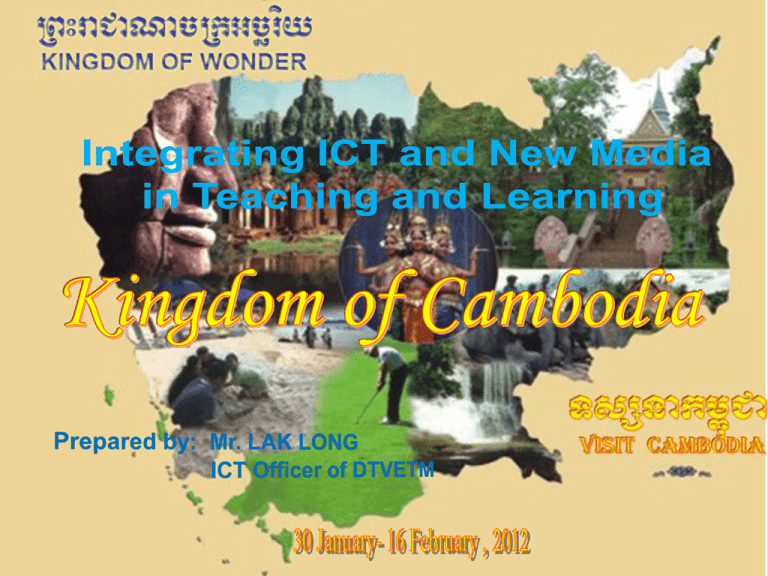
1. Country’s Profile Country name : Kingdom of Cambodia. Location : Southeastern Asia, bordering the Gulf of Thailand, between Thailand, Vietnam and Laos. Area : 181,035 sq km. Population : 14,805,358 (2011 Estimate). Capital: Phnom Penh. Climate : Tropical monsoon with rainy Season Jun-Oct. and dry season Nov-May. Religions : Most of population about 90% Buddhism, which is the state religion. Hinduism, Islam and Christianity are present in Cambodia. Language : Khmer (Official), English and French. 2. Education in Cambodia Cambodia’s education and training sectors are governed under two separate ministries of government. The Ministry of Education, Youth, and Sports (MoEYS) is responsible for establishing and developing human resources of the highest quality and ethics in order to develop a knowledge-based society within Cambodia (Academic Stream). The Ministry of Labour and Vocational Training (MoLVT) is responsible for contributing to poverty reduction as stated in the political platform of the Royal Government through the Labour field and TVET sector (TVET Stream). 3. Structure of DTVETM Director Deputy Director National Training Fund Office Micro-Credit Office Deputy Director Special Needs & Gender Office Deputy Director Relation Office TVET Institute Management Office Deputy Director Planning & Statistics Office 3.1 TVET System in Cambodia 3.2 TVET Training Programs TVET Training Programs is divided into 2 parts: -Formal TVET Programs (Long Courses). -Non Formal TVET Programs (Short Courses). 3.3 Statistics of Student Graduated Year 2000-2010 3.4 Financial Sources Government Private Sector Donors/ Donors Agencies TVET NGOs/IOs Others Student Fee 3.5 Development Partners The following are the major partners, who are involved in the TVET sector: ADB UNESCO ILO KOICA JICA ITE Education Service, Singapore SEAMEO VOCTECH AOTS Association Connected Schools Polytechnic University of Japan 3.5 Development Partners (Cont…) Currently MoLVT had processed two projects. first project named “JFPR” is grant from Japan through ADB. second project named “STVET” is grant from ADB. JFPR focus on three main points Post-Harvest Technology and Food Processing. Skills Bridging. STVET focus on Voucher Skills Training Program Skills Standard Civil Work ICT Capacity Building 4. ICT for teaching and learning in TVET Connected Schools is the NGO signed MOU with MoLVT and several local partners. Don Bosco Smart Mobile CIST Train Teachers of five regional training centers. Teachers will train the students in five regional training centers. Provide internet meeting once a week between teachers in rural area and the teachers in capital. 4. ICT in education for TVET (Cont…) G.O.A.L: Internet CIST Don Bosco Wide Area Education Network Phnom Penh Connected Schools Other MoLVT Content creators: PPI, NPIC, NTTI Regional Vocational Training Centre Takeo Regional Vocational Training Centre Kampot Regional Vocational Training Centre Regional Vocational Training Centre Battambang Siem Reap & Svay Rieng 4. ICT in education for TVET (Cont…) • Conferencing with good teachers: audio & videos & screen sharing • Downloading and projection of good quality local language training content from our multimedia library • Internet access: discover the world & and learn! • Distant tutoring , Forum and Email with other students and teachers 5. Major Issues, Challenges, and Future Direction The information and communication technology still limited to some TVET Institutions, especially those in remote provinces. Below are some issues and challenges some TVET institutions are facing: Lack of building for training. Not enough computers for teaching and learning. ICT integrated into curriculum is still limited. Lack of ICT Human Resource. Power supply is insufficient. Internet fee is high. 5. Major Issues, Challenges, and Future Direction (Cont…) Future Direction as follow: TVET management information system is being developed to provide TVET management valuable information. Business and ICT, skill standard, curriculum and testing package are being developed. ICT Capacity will be improved. More ICT equipments will be delivered to all TVET institutions. Budget will be allocated for internet connection fee for all TVET institutions. 6. References -http://www.nis.gov.kh/ -http://en.wikipedia.org/wiki/Cambodia -http://connectedschools.org -http://www.adb.org -Department of Technical and Vocational Education and Training Management -MoU between MoLVT and Connected Schools -ICT in Education in Cambodia, MoEYS/UNESCO (2004)

